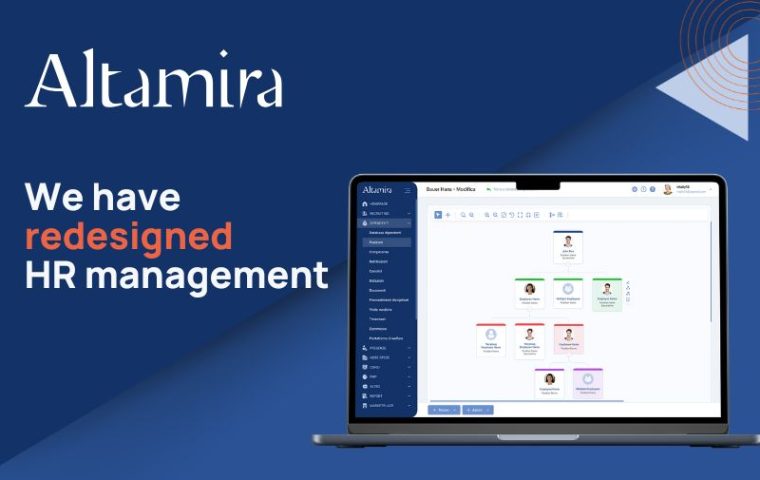With the rapid pace of technological advancement and changing dynamics in the workplace, companies are increasingly seeking guidance to adeptly navigate these challenges. This need is especially pronounced in the Human Resources (HR) field, which is undergoing significant changes due to the rise of generative artificial intelligence and a shift towards hybrid work environments.
In light of this, understanding upcoming HR trends is crucial as it helps pinpoint where businesses should focus their efforts and resources.
To provide the most comprehensive and reliable overview, we have compiled a ranking of the most popular HR trends for 2024 based on an analysis of 15 authoritative articles. For each trend, we have noted the number of articles promoting it in parentheses.
The coming year will see businesses focus their attention on tackling issues like the Great Resignation and Quiet Quitting. As a result, they will enhance their overall employee experience through comprehensive training, greater workplace flexibility, and an emphasis on Diversity, Equity, and Inclusion (DEI).
A vital tool in achieving these goals will be the support of cloud-based HR technologies, which enhance the efficiency of every process and free up resources for more strategic activities.
To delve further into our analysis, continue reading past the rankings. You’ll find our commentary and a summary of the 15 articles we reviewed.
Happy reading!
The Ranking of Key HR Trends for 2024
1. Employee Experience and Engagement (10)
In the wake of phenomena like the Great Resignation and Quiet Quitting, both linked to employee dissatisfaction, it’s clear why enhancing staff experience and engagement is a top HR trend for 2024. Companies are finally embracing an employee-centric mindset, prioritizing the needs and perspectives of their workforce in every decision and strategy.
This transition necessitates a detailed analysis of every interaction point between the company and its employees, guaranteeing that each one positively enhances the overall employee experience. This holistic approach will intersect with other 2024 HR trends, such as fostering physical and mental well-being, adopting flexible work policies, and promoting pathways for internal career development.
The critical nature of this trend is highlighted by Gartner‘s survey findings, which reveal how HR professionals’ continue to put emphasis on optimizing the user experience.
2. Upskilling and Reskilling (9)
As has been the trend in recent years, training will remain a hot topic for HR departments in 2024. Updating staff skills will enable companies to maintain high productivity levels and leverage new technologies that enter the workplace daily.
Internal training can reduce spending on recruitment and selection, lessening reliance on a highly competitive job market. Effective reskilling and upskilling plans will require tools to map employee skills, identify gaps, and design effective training plans.
These programs, potentially including coaching and mentoring opportunities, play a vital role in attracting and retaining top talent.
3. Artificial Intelligence (8)
The growing excitement around generative artificial intelligence in 2023 has rightly positioned it as a prominent HR trend for 2024.
Integrating AI into various HR management processes promises substantial benefits for businesses and HR departments, freeing up time for strategic, relational, and inherently human tasks.
It’s crucial for these tools to be employed as aids and facilitators, with a vigilant eye on mitigating bias and safeguarding privacy. The potential range of AI applications is extensive, spanning recruitment, training, employee engagement, and feedback collection.
4. Hybrid and Remote Work (8)
Despite some companies revisiting their policies, hybrid work models are trending towards becoming the standard in work organization. After all, this shift aligns perfectly with employee preferences, thereby acting as a powerful catalyst for enhancing employee attraction, engagement, and retention.
The task for HR professionals is to effectively manage and regulate agile work environments, bolster transparency and internal communication, and foster a culture rooted in trust. Equipping employees with the necessary tools for effective collaboration and communication in a remote setting is paramount.
A notable HR trend for 2024 includes escalated investments in IT infrastructure and remote collaboration software. Finally, implementing a thorough onboarding process is essential to ensure remote employees integrate smoothly and feel part of the company culture from day one.
5. Cloud-Based HRM Software (7)
The digitalization journey of HR departments continues to gain momentum, increasingly leaning on cloud technology to streamline an expanding array of processes.
Cloud-based HR software, universally accessible through web browsers, is exceptionally suited for facilitating hybrid work environments. 2024 will also see a greater focus on optimizing the user experience for both HR professionals and employees.
As the array of available tools expands, there’s an inherent challenge to preserve simplicity and user-friendliness. Therefore, comprehensive software suites like Altamira HRM, which consolidates multiple processes within a single interface, will be particularly sought after.
6. Diversity, Equity, and Inclusion (6)
Diversity and inclusion themes, now embracing equity, have been pivotal in HR trends for several years.
In 2024, companies are poised to take more tangible steps in this area, recognizing how DEI significantly impacts various corporate aspects, including attraction, retention, and productivity. The action plan is manifold, from educating managers about inclusivity to narrowing pay gaps, adopting unbiased language in all corporate communications, and valuing diversity as an asset.
HR departments can leverage sophisticated tools from the HR Tech sector, including skills assessment tools, blind recruiting software, and anonymous feedback collection tools, to foster a more equitable and inclusive workplace.
7. HR Analytics and Data-Driven Decisions (6)
The interest in collecting and analyzing data within HR management processes continues to rise.
After all, the primary purpose of adopting this technology, particularly in experimenting with predictive analysis, is to support data-driven decision-making. Technologies have a broad application range in HR, covering areas like recruiting, performance management, training, and promotions.
HR analytics also plays a crucial role in identifying workforce trends, measuring the effectiveness of implemented strategies (like assessing employee satisfaction with benefits packages), and refining the overall employee experience.
8. Employee Well-being (4)
Employee well-being is singled out as a notable HR trend for 2024, deserving its own spotlight within the broader theme of employee experience.
Wellness initiatives offered by companies are becoming increasingly comprehensive, addressing physical, mental, financial, and emotional health through varied offerings like health insurance, gym memberships, psychological counseling, and support for volunteering.
Here too, technology will serve as a vital ally, with a plethora of software and apps focused on enhancing employee well-being, ultimately aiming to cultivate a healthy, content, and consequently more productive workforce.
9. Creating a Positive Corporate Culture (4)
The push by some managers and companies for employees to return to the office largely stems from the challenge of fostering and sharing a cohesive organizational culture remotely.
While this concern is valid, such a drastic move overlooks the numerous advantages of hybrid work.
The HR trend in 2024 will be a shift towards nurturing a corporate culture rooted in trust, transparency, inclusion, celebrating diversity, and flexibility. HR departments can still promote face-to-face interactions by organizing corporate events and fostering a network of “alumni” among current and former employees, with the ultimate goal of ensuring employees feel respected, valued, and appreciated.
10. Career Paths and Mobility (4)
In 2024, companies are expected to pivot from focusing primarily on external recruitment to significantly boosting internal career development and mobility.
This shift complements the implementation of extensive upskilling and reskilling programs designed to prepare employees for new roles within the organization. Additionally, it involves retooling performance management strategies to better align with and support these internal growth opportunities.
Developing internal career pathways is also a strategic approach to bolster employee retention.
11. Agile and Continuous Training (3)
Upskilling and reskilling will be among the most important HR trends of 2024.
Companies will adopt agile and continuous training models to deliver a vast volume of courses and content, integrating learning and skill development as a regular aspect of employee work.
Beyond the primary training tool, the Learning Management System (LMS), companies will also rely on microlearning software and assessment tools. These resources are designed to tailor training to individual employee needs, ensuring a more personalized and effective learning experience.
12. Training and Development of Management (3)
The changing landscape of management roles highlights a general skill gap among supervisors and leaders.
To address this, a leading HR trend for 2024 is ramping up investments in management training programs. It’s crucial for individuals in these roles to not only keep pace with the latest industry technologies but also to sharpen critical soft skills essential for successful team leadership.
The training will encompass specialized coaching techniques, the ability to deliver constructive and timely feedback, and the cultivation of cross-functional skills, thereby positioning managers as trusted mentors and effective leaders within their teams.
13. Phygital (3)
The concept of “Phygital,” a fusion of “physical” and “digital,” is set to become increasingly familiar in the coming years.
This trend represents a blending of office and home-based work, creating hybrid experiences that leverage current and emerging technologies like IoT, the metaverse, and augmented/virtual reality while preserving a vital relational and human element.
At present times, the experience of phygital events doesn’t fully replicate that of an in-person gathering, but as technology advances, this gap is anticipated to diminish significantly.
14. Skill-Based Approach (2)
In 2024, a key HR trend will be the move from a title-based to a skill-based approach in the workplace. This transition will have a broad impact: it will reshape recruitment and selection, potentially expanding the range of candidates for various positions.
Moreover, it will alter how companies structure their training programs and design pathways for internal career advancement. However, to effectively implement this shift, companies will need to adopt robust tools for assessing and tracking employees’ skills.
15. Support Against the High Cost of Living (2)
Recent years have seen soaring inflation, posing considerable challenges for a significant number of workers.
In response, companies are encouraged to support employees navigating these financial pressures. Although raising salaries might not always be feasible, there are other supportive measures businesses can adopt.
These include promoting remote work to cut down on commuting expenses, offering meals and snacks onsite, strengthening corporate welfare initiatives, providing access to psychological support, and showing an overall willingness to empathically collaborate in lessening the burdens of these financial challenges.
Our Commentary on the HR Trend Ranking for 2024
Since 2017, Altamira has been closely monitoring HR trend predictions.
The usual scenario features a diverse array of micro-trends pinpointed by different experts, in addition to 10-15 major themes that regularly appear as the most frequently cited trends.
This year, however, presented a significant change: our analysis of 15 key articles revealed fewer yet more consistently recurring themes, most of which are represented in our current trend ranking.
This convergence of trends presents both opportunities and challenges.
On the positive side, it lends greater credibility to these predictions and shows that HR professionals have clear ideas about which areas require more attention.
Conversely, this consensus might lead to an over-reliance on tried-and-true solutions, potentially curtailing the pursuit of new, innovative approaches in other areas.
Compared to the 2023 forecasts, new themes have emerged on the HR scene, notably artificial intelligence. The advancements in generative AI have sparked widespread interest at every level of corporate structure. The ‘phygital‘ trend, which merges the physical and digital worlds, is gaining traction as well, highlighting the importance of this blended interaction.
Interestingly, references to employer branding have notably diminished, suggesting its almost completed integration into the routine practices of many companies.
Sources: Allianz Care, Babbel for business, Empxtrack, GFoundry, Grove, HiringThing, Hownow, HR-Focus, HR Morning, HRTech Demand, Hypertime, Lais Bertolino, Paychex, People Development Magazine, SkillLake
Copyright: ©TarikVision/Adobe Stock














